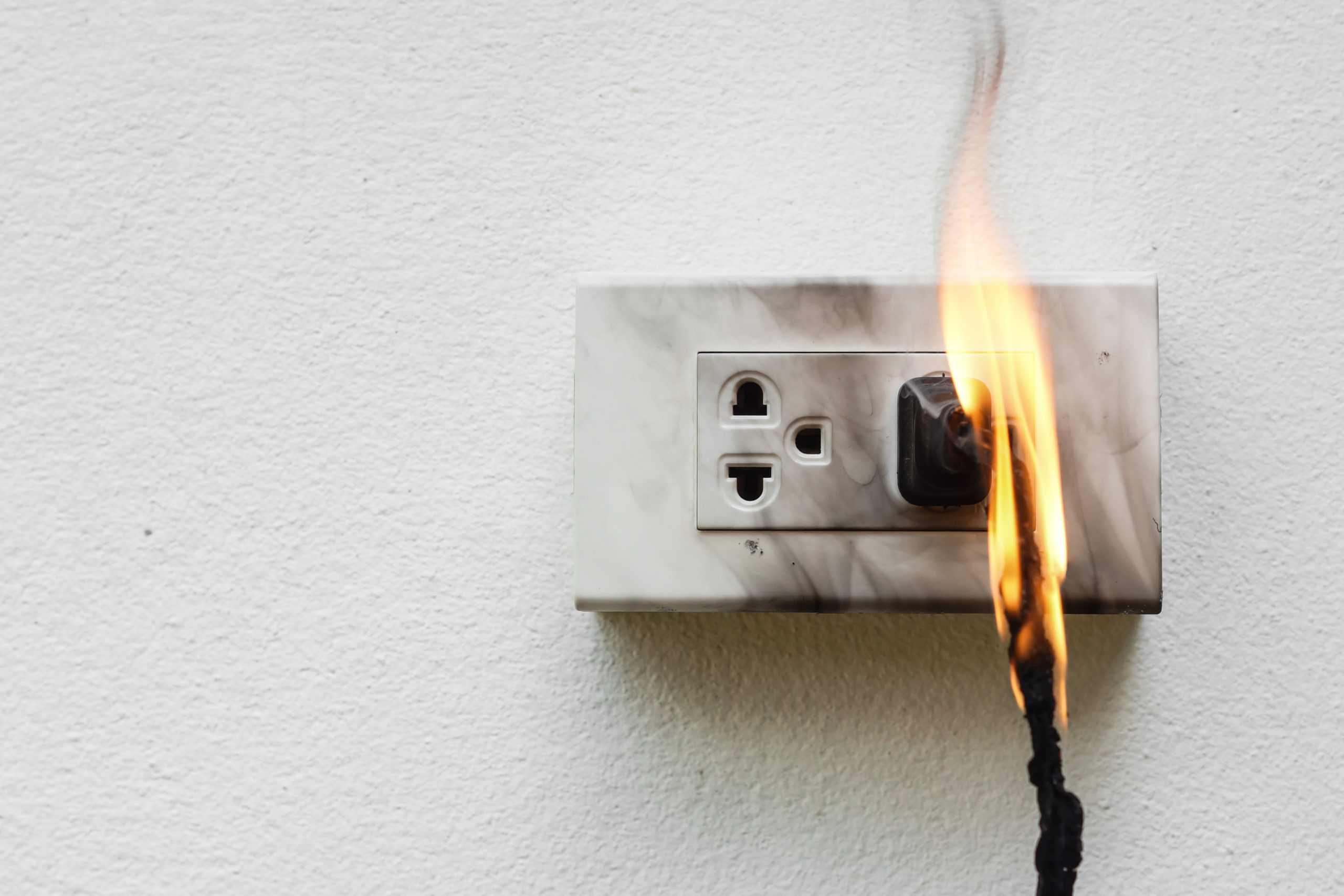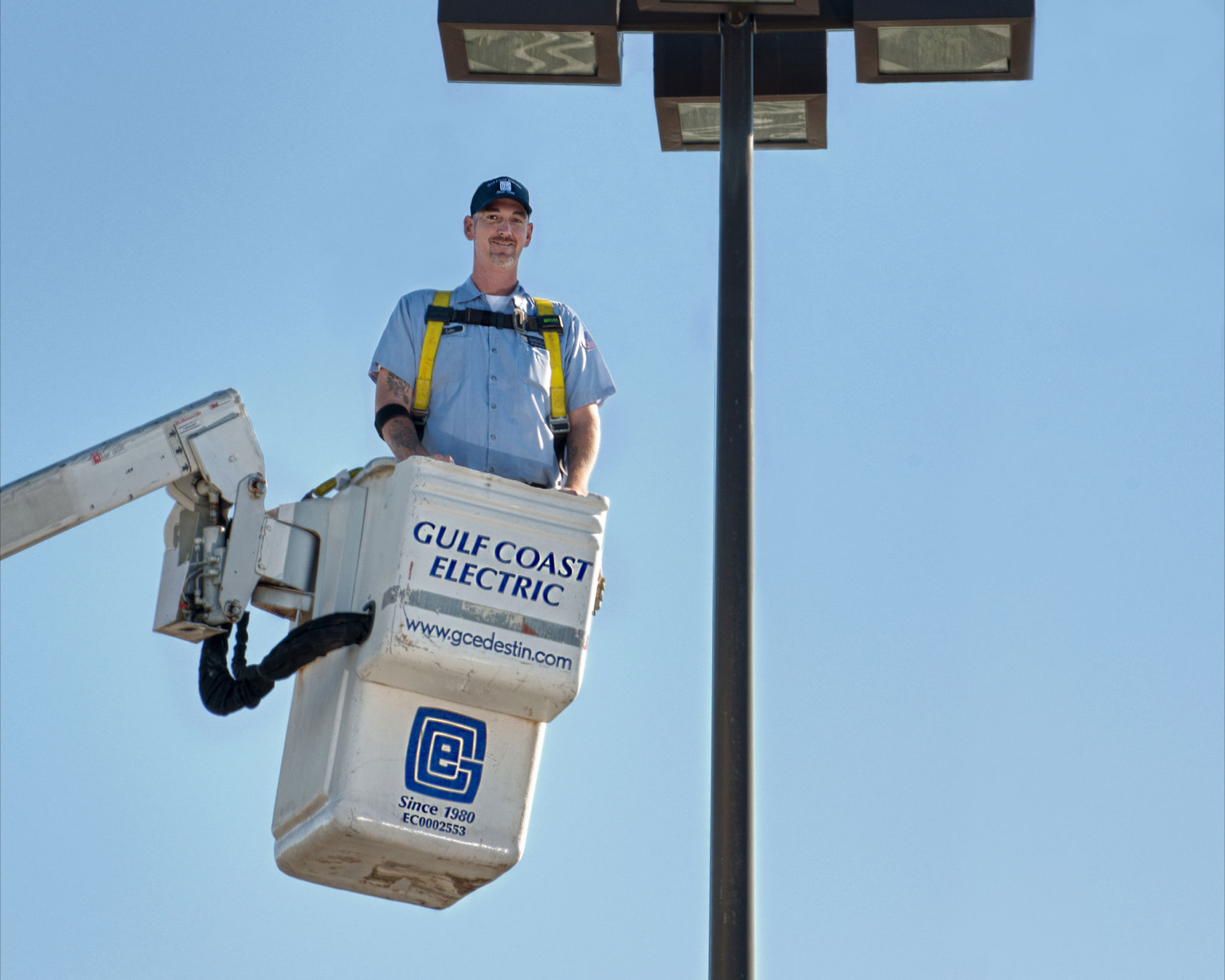Keep Your Household Safe From Electrical Hazards
Here in Destin, electrical fires pose a significant threat to our homes. Whether due to faulty wiring, overloaded circuits or aging appliances, these incidents are more common than we’d like. Extinguishing an electrical fire can be as simple as using baking soda, but how do you know when that’s the best course of action?
At Gulf Coast Electric, our mission is to ensure the safety of our community. In the unfortunate event of an electrical fire, knowing how to respond is crucial. Read on for valuable insights on handling an electrical fire in your Destin home.
Can A Short Circuit Cause A Fire?
Yes, a short circuit can potentially cause a fire. When an electrical circuit experiences a short circuit, an unintended path with low resistance is created, allowing a large current to flow. This increased current can lead to overheating and the ignition of surrounding materials — such as insulation or combustible components in electrical devices.
The intense heat generated during a short circuit can trigger fires, posing significant safety risks. Proper electrical installations, regular maintenance and the use of appropriate safety measures help protect against short circuits and reduce the associated fire hazards.
Emergency Response: Disconnecting Power Safely
If an electrical fire breaks out in your home, find the source of power and immediately shut it off — if doing so does not put you in harm’s way. Otherwise, shut off the electricity in your home to prevent the fire from spreading. Once again, only try to shut off power if it’s safe to do so.
Finding the source of the fire and stopping it will protect you from electrocution and further damage.
Fire Size Matters: Small Fire Extinguishing Tips
If the fire is small, you can use baking soda to extinguish it. The sodium bicarbonate in the baking soda — which is a chemical also found in Class C fire extinguishers — will put out the fire. You can also put a fire blanket or a heavy piece of clothing over the flames to deprive it of oxygen. Smothering the flames is one of the best ways to put out an electrical fire.
In the heat of the moment, you may wonder if you can use water on an electrical fire. In these situations, never reach for water! This could electrocute and shock you, as well as make the fire spread more quickly. If you can, use a fire extinguisher that is labeled Class C, which is specific to electrical fires.
Safety First: Evacuation Procedures
If you’re still unable to extinguish the fire, get out of the house and call 911. Help all residents and pets exit the home as you leave if you’re able to safely reach them. Make sure you have two or more pathways to ensure a safe exit and remain a distance away from the fire in case of an explosion.
Once outside, close the door behind you to contain the fire and prevent further spread and damage beyond the house. Do not attempt to go back into the house until the fire department has stated it’s safe to do so.
Prioritize Safety With Gulf Coast Electric
Safeguarding your home from electrical fires requires proactive measures and awareness. By following the safety tips outlined above and being cautious in emergency situations, you can minimize risks.
For comprehensive electrical services and peace of mind, consider reaching out to Gulf Coast Electric. Our experts can provide inspections and maintenance for your electrical system. Don’t compromise on safety — make the call today to prioritize the well-being of your home and family.











